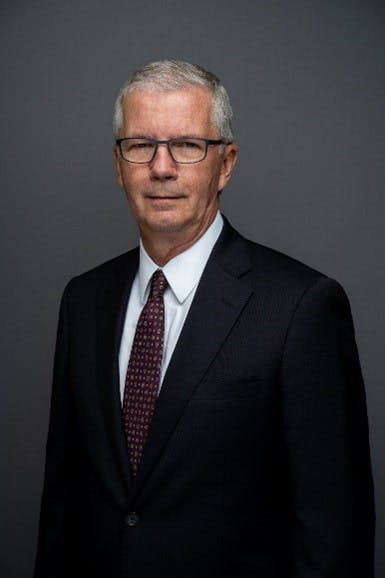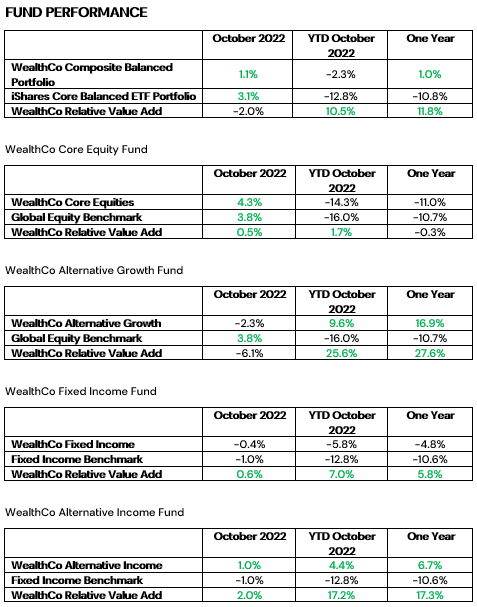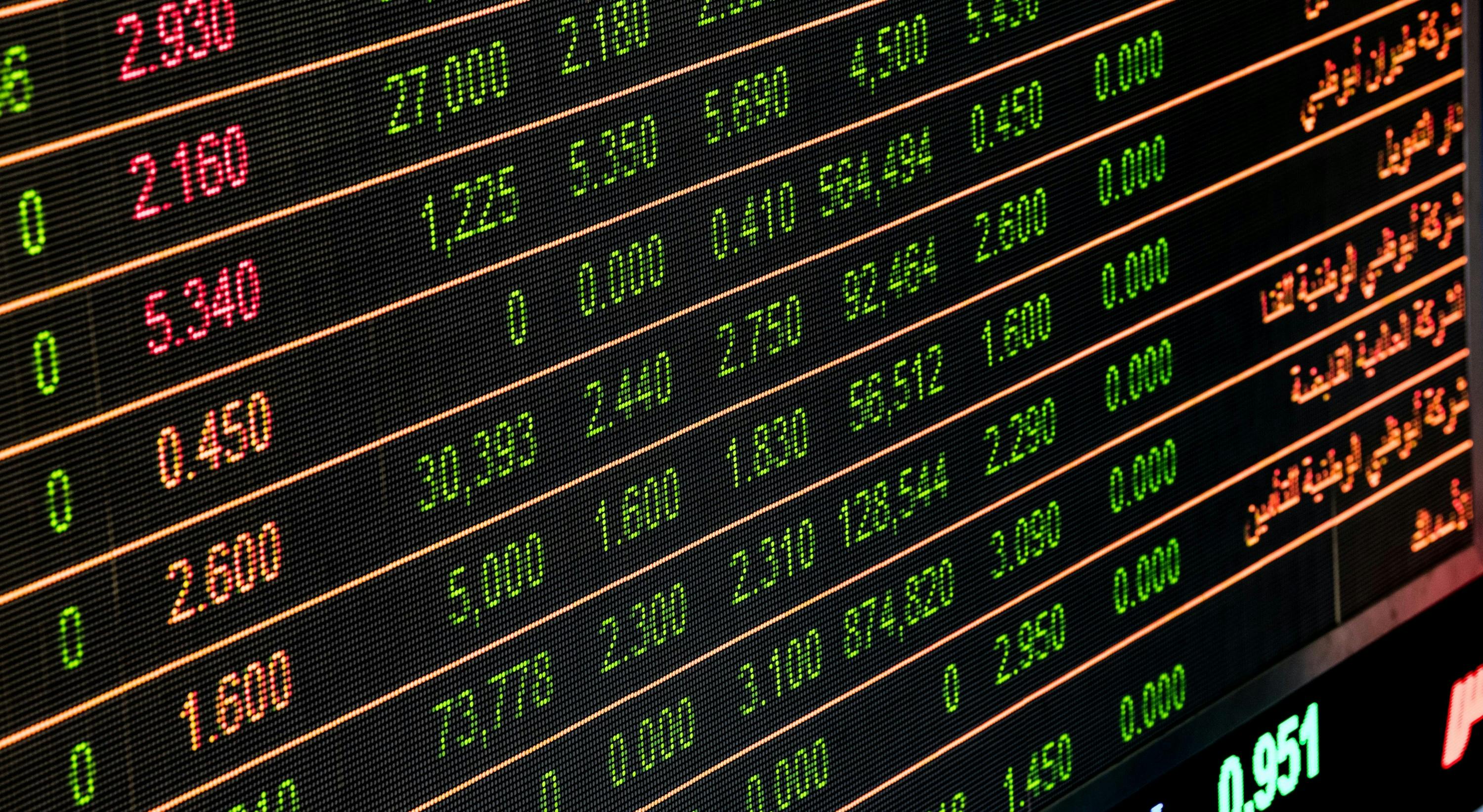This month’s market commentary focuses on the Small Cap equity investments managed by Laurus Investment Counsel. Laurus has managed assets on behalf of WealthCo investors since 2014. We posed a few questions to Dave Makarchuk, Chief Investment Officer for WealthCo, followed by a few to Chris Page, President and CEO of Laurus.
Q: Dave, can you describe the mandates Laurus manages with WealthCo?
Laurus manages three separate mandates within the WealthCo Core Equity Fund. Their Canadian equity fund represents about 12% of Core Equities while their US Small Cap fund is our largest holding, and we recently transitioned from their Global Small Cap fund to their International Small Cap fund.
Q: Why did you transition from the global fund to the international fund?
The global fund has a mix of both US and non-US stocks, while the international fund only holds non-US companies. With the new structure it will be easier for investors and advisors to better understand the country allocation of the underlying holdings since there won’t be any overlap.
Q: How will fund assets be allocated between the global and international fund?
The neutral allocation of the Core Equity Fund to Small Cap equities will target 75% to the United States (via the US Small Cap fund) and 25% non-US (via the International Small Cap fund). Looking ahead, Laurus may elect to increase or decrease those weightings (within a reasonable range) if they see better opportunities in one region versus the other.
Q: Chris, how would you describe Laurus’s overall investment strategy?
We are a long duration investor, focused on small/mid capitalization strategies constructed of global businesses that meet our demanding criteria for growth and quality. We believe that owning the highest quality assets for our clients will produce the best risk-adjusted returns in the long term. We view ourselves as business owners, and not just investors, which means we’re focused on the “right” things: strong management teams, industry leadership, competitive advantages, pricing power - that sort of thing. But our strategy is all about uncovering the highest quality companies – long term sustained growth will drive market price, but quality provides downside protection.

Q: From your perspective, how does it differ from that of other equity managers?
That’s a terrific question and tough to answer briefly. However, I would say the biggest difference is our focus on partnering with great management teams. Lots of equity managers say they buy “compounders” – companies that generate cash and reinvest at a high return on capital. But small and mid-sized companies are very different than large cap companies – management teams play a very large part in the business success. They need to be people focused – staff, suppliers, clients – to ensure the company can grow into the future. Experience is critical – understanding their industry and competitors in order to position the business properly. And of course, not only do they need to be transparent, but also of the highest integrity.
Q: How do you differentiate between high-quality and lower-quality businesses?
Another really good question, Dave. Off the top of my head, I would have to point to pricing power. The ability of a business to react to changes in the economic and competitive environment and protect profitability. That would preclude energy and mining companies, as these types of cyclical businesses can increase production but cannot control the price paid for their hard work as it’s a commodity. Strong cash flow generation and the ability to generate strong returns on cash deployed, combined with low debt leverage would also be key criteria. And of course, very strong management teams. You can have a good business with a weak management team and it’s likely not going anywhere long term.
Q: How has recent market volatility impacted your investment processes or security selection?
It hasn’t really. Market volatility is largely caused by emotional impacts though clearly there are some big fundamental changes throughout the year. There are definitely short-term geopolitical risks impacting the perspective on businesses in Europe. And reigning in inflation through successive central bank rate increases is working its way through business growth projections. But endeavouring to predict the outcomes of these events is, in our opinion, fraught with probability bias given the randomness of potential effects. Successful long-term investing is ultimately the outcome of very specific selections, and this is where we will continue to devote our efforts.
Q: The performance of your US Small Cap fund has been much better than the benchmark over the last few years. What has driven the relative performance?
It’s really been strong stock-picking. In the three-year period ending September 30th, the portfolio return of 11.5% outperformed its index, the Russell 2000 Small Cap Index, by 8%. Of that, 7.3% or over 90% of the added value, came from stock selection. Interestingly, we also outperformed the S&P 500 Index by 4.5% in the same period, also through stock selection.
This would typically be true across our various strategies. However, rising geopolitical risks – specifically Russia invading Ukraine – has widened the range of outcomes, particularly for European companies in the international equities portion of the portfolio in the first six months of this year. Nevertheless, the process in the strategies remains the same and, as a result, we have been able to acquire companies we have admired at more attractive prices.
Q: How are the funds positioned as 2022 draws to a close?
The US portfolio is as well-positioned today as it was at the beginning of the year. We’ve been able to add a couple of new businesses - like Five Below, a unique retailer to teens and tweens with a similar business model to one of our Canadian holdings, Dollarama – and to rearrange some of the portfolio weightings based on valuation.
On the international strategy, we believe the near term may continue to be challenging in Europe which is at the epicenter of current geopolitical tensions, but remain confident that our companies have the fundamental strength and financial wherewithal to navigate through these challenges and come out even stronger.
Q: Do you have any closing thoughts to share with WealthCo investors?
After more than forty years in this business, when asked by my friends I always comment that investing is a marathon, not a sprint. Markets are affected by short term emotion, which I admit is difficult to ignore as we’re bombarded with information. But one has to look at investing from a business owner’s perspective. If you were interested in buying a high-quality business, rather than simply investing in the stock, you would put far more emphasis on the value of its long-term prospects. Rooting out and owning the highest quality assets are proven to provide the best risk-adjusted returns. Our philosophy says it all, “Dig Deep. Own Long.”
The WealthCo business model is built on a manager of managers philosophy. What this means is that we find world-class, highly reputable investment managers who are specialists in their area of expertise and look to them to provide us with deal flow and insights that we would not otherwise have access to.

Related Posts



